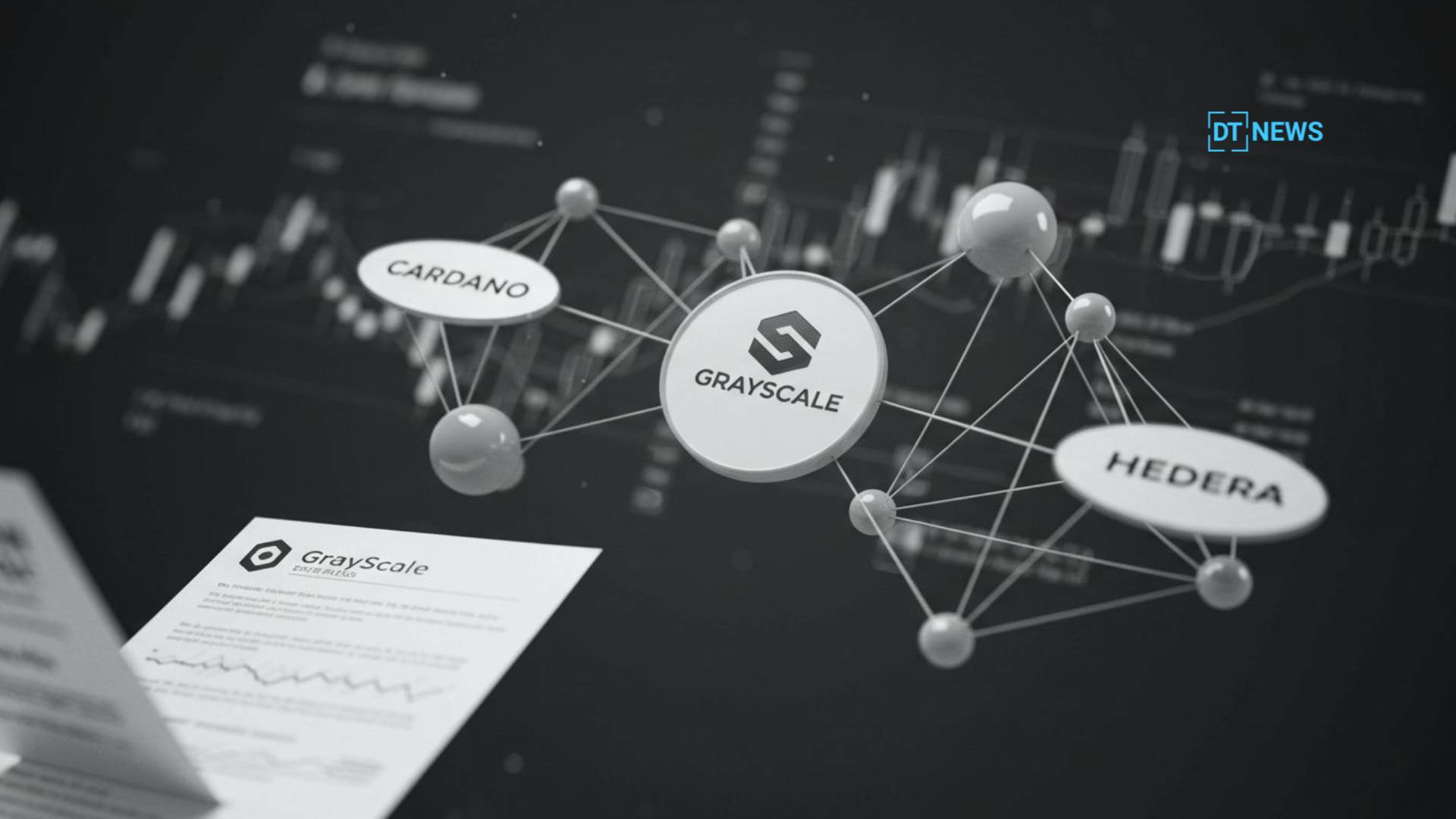According to latest reports, Grayscale is getting ready to lead altcoin fund innovation and has registered two statutory trusts in Delaware: one for Cardano (ADA) and another for Hedera (HBAR). Market watchers think this is a sign they will soon file for spot Cardano and Hedera ETFs for both digital assets as part of the ongoing altcoin ETF trend.
Trust Filings Mean ETF Intent
On August 12th, Grayscale registered the “Grayscale Cardano Trust ETF” and “Grayscale Hedera Trust ETF” as general statutory trusts, a legal structure often used to lay the groundwork for spot ETF filings. Analysts note that Grayscale has done this before, filing trusts in Delaware, then submitting S-1 forms to the SEC as the next step to launch a fund.
This follows prior regulatory activity. Reports shared that earlier this year, the SEC acknowledged NYSE Arca’s 19b-4 filings for both a Cardano ETF and a Hedera ETF. This constituted the first step in the formal SEC review process.

Grayscale’s Altcoin Playbook
Based on available data, Grayscale has already filed for spot ETFs for other altcoins such as Dogecoin, Avalanche, Filecoin and Tether’s Bittensor. These new filings show they are moving beyond Bitcoin and Ether and embracing broad altcoin exposure in regulated frameworks.
Additionally, Grayscale recently announced they will be bringing exposure to tokens from projects like DeepBook and Walrus, which are infrastructure for the Sui blockchain suggesting that their product strategy is about diversity and innovation.
Regulatory Momentum for Altcoin ETFs
The regulatory environment might just be shifting in favor of altcoin ETFs. The SEC approving in-kind redemption for Bitcoin and Ether products is a big deal as it lowers operational friction and may invite similar for altcoins.
At the same time, regulatory clarity is increasing through initiatives like the SEC–CFTC’s “Project Crypto” to define how digital assets are classified under U.S. law and reduce uncertainty for ETF applicants.
Grayscale is also going through traditional financial channels as they have reportedly filed confidentially for an IPO with the SEC so they can expand their institutional presence beyond digital asset trusts.
Why Cardano and Hedera ETFs?
Cardano is a research-focused, scalable smart-contract platform, attracting developers and institutions who want robustness and scientific rigor. Hedera is a distributed ledger for enterprise and business use cases; stability and low-latency performance is its appeal. Spot Cardano and Hedera ETFs for these tokens would be entry points for investors to diversify within regulated frameworks.

This would allow institutional investors and traditional portfolio managers to get digital asset exposure without the hassle of custody, key management or direct token trading.
Conclusion
Based on the latest research, Spot Cardano and Hedera ETFs could clearly happen. As Delaware trust registrations, SEC acknowledgments and institutional interest align, Grayscale is preparing to bring Cardano and Hedera into publicly tradable, regulated forms.
Just as crypto moves from niche instrument to mainstream asset class, these moves show confidence and foresight.
For in-depth analysis and the latest trends in the crypto space, our team offers expert content regularly.
Summary
Grayscale has registered two new Delaware statutory trusts for Cardano and Hedera, entering spot altcoin ETF territory. These filings follow the company’s history of ETF prep and come as regulatory support is rising, SEC has endorsed and investors are clamoring for regulated altcoin exposure.
FAQs
Why is Grayscale registering trusts now?
These filings often precede ETF applications meaning intent to launch regulated Spot Cardano and Hedera ETFs.
How does SEC acknowledgment affect ETF timelines?
Acknowledgment of 19b-4 filings starts the formal SEC review clock, 240 days before final decision.
Why are Cardano and Hedera important?
Cardano’s scientific approach and Hedera’s enterprise features make them attractive regulated exposure points as altcoin adoption grows.
Glossary
Altcoin ETF Expansion – The process of creating ETFs for cryptocurrencies other than Bitcoin and Ethereum, opening up institutional access.
Statutory Trust Filing – A step in setting up a structured fund (often required before ETF applications).
19b-4 Filing – A regulatory document to change listing rules and list new products on exchanges, starting SEC review.
In-Kind Redemption – A mechanism to redeem ETF shares for the underlying asset rather than cash, reducing costs and complexity.



















































































































